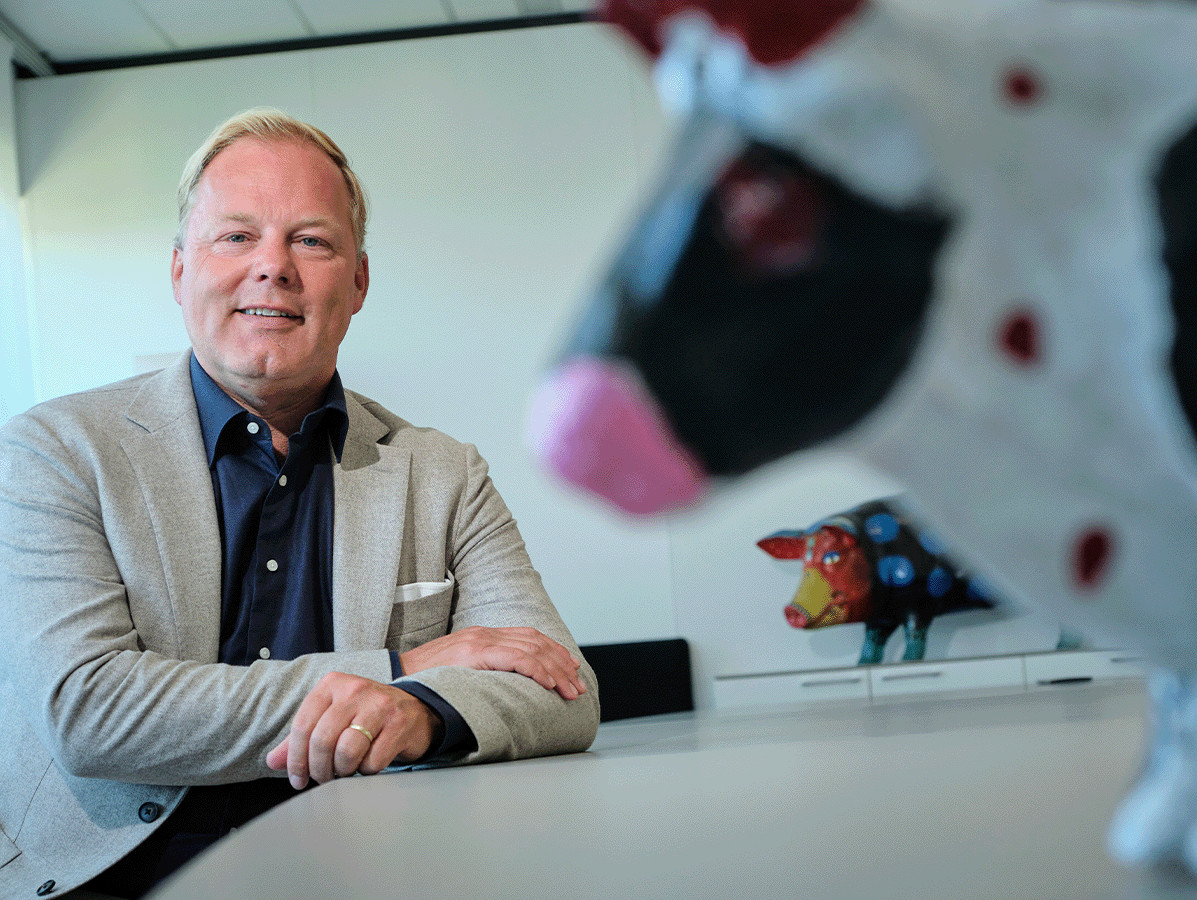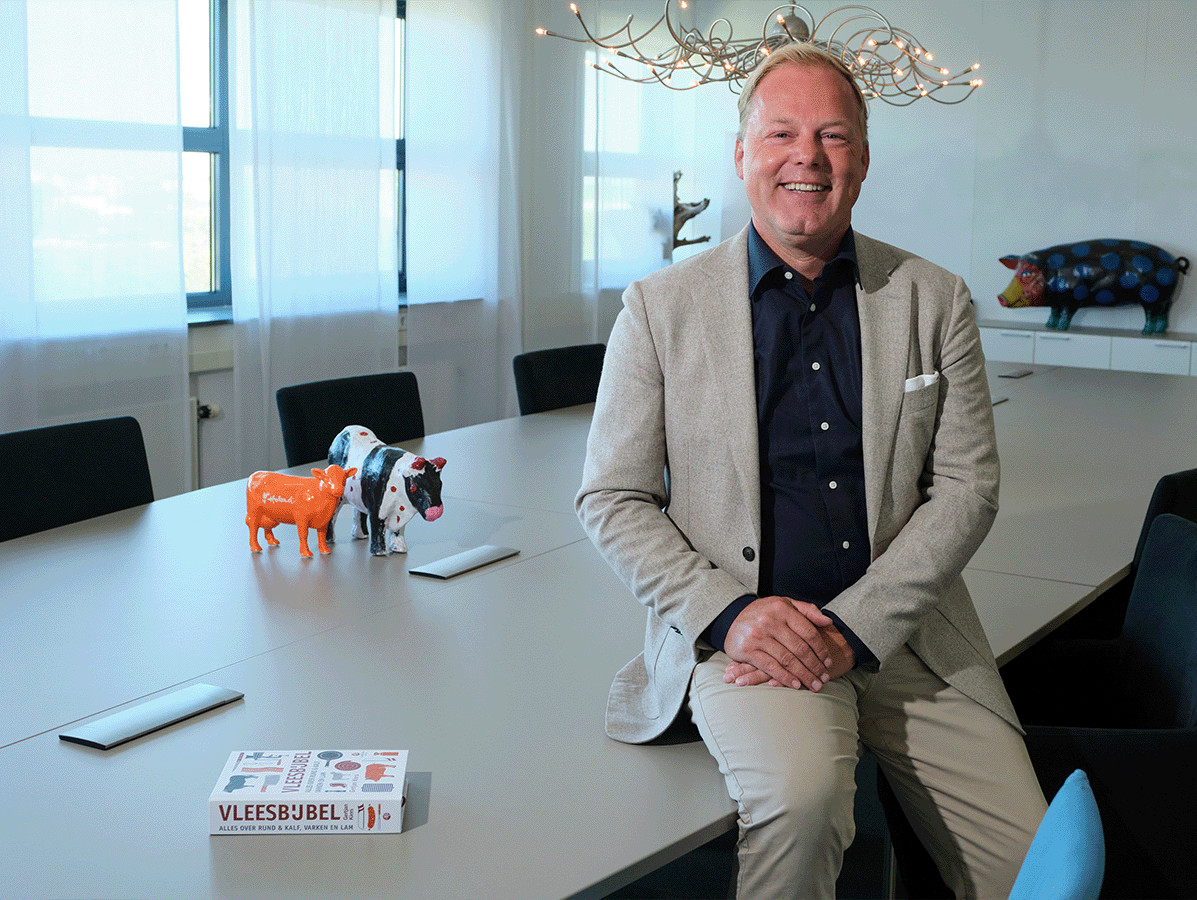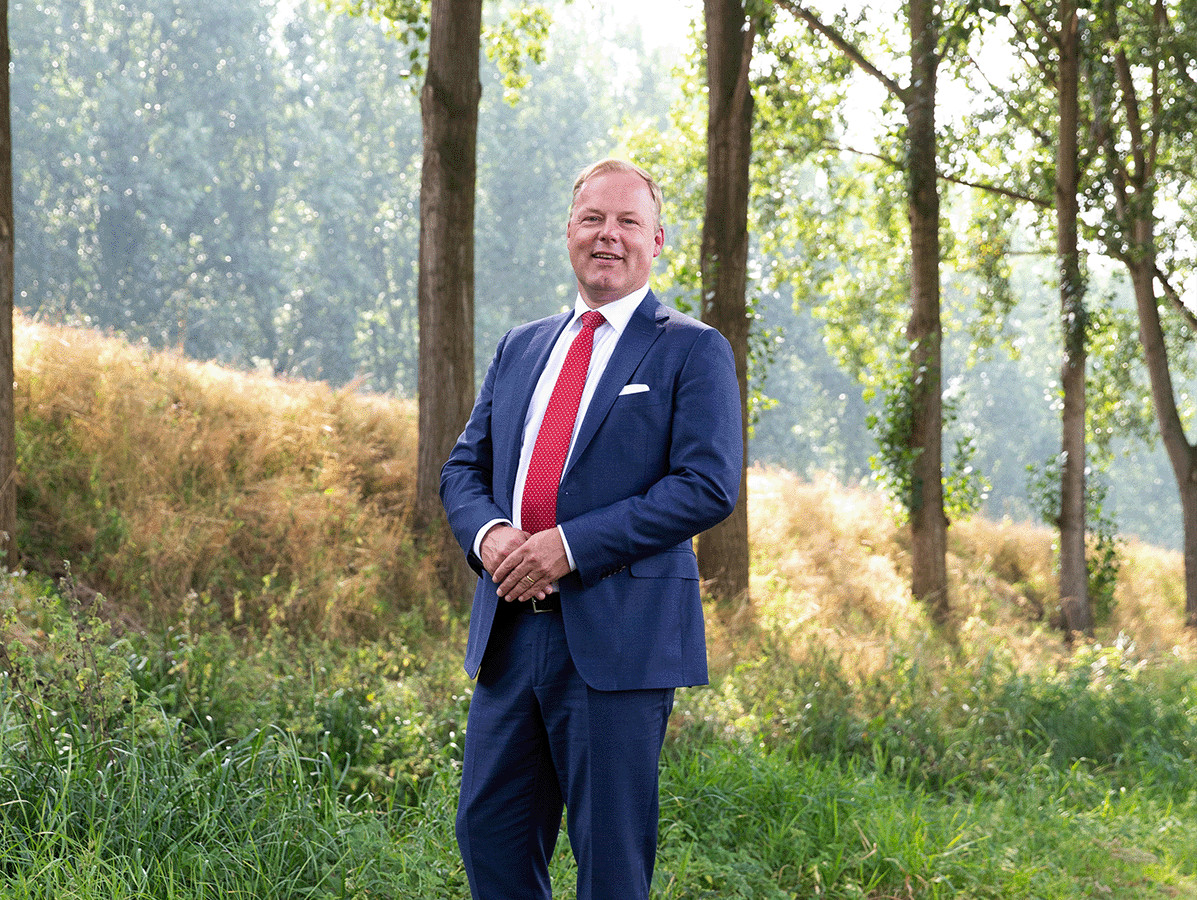
At the beginning of last year, Laurens Hoedemaker (51) took office as the new chairman of the Central Organisation for the Meat Sector (COV) and the Dutch Meat Industry Association (VNV). Before that, he was director of the Royal Dutch Hunting Association, which he put back on the map as a true communications man. Will he repeat that trick at COV?
'The interests in the meat sector are huge; we need to increase the COV's influence'
There is always something going on in the meat sector, but the period in which Laurens Hoedemaker is stepping into the ring - if you can describe his chairmanship of the representative of the Dutch meat sector as such - is particularly turbulent. The pressure from NGOs such as Wakker Dier and Varkens in Nood and a political party such as the Partij voor de Dieren ('Party for the Animals') is increasing. The nitrogen crisis is putting the survival of livestock farmers in the Netherlands under pressure and in the background the call to eat more vegetable proteins (climate change!) is becoming louder and louder. Hoedemaker wants to take back the reins, to tell his own story. And he wants to make the COV a transparent and approachable organisation.
"A number of things are already going very well here, for a long time. The moment our members run into problems, the help is ready and waiting. That goes very smoothly. Still, I had to take a deep breath when I looked at the organisation's strength."
"Well, you see, I come from the Dutch Hunting Association, which has 21 thousand members. Some 30 professionals work at the office of that association. The COV may have 'only' 50 members, but they are all large companies with many employees. The interests are huge. Economically and in terms of food supply. And only 15 people work here! I believe that is too few, we really need to increase the number of staff. I am going to discuss this internally. There are only two options: either we need more money, or we have to make choices and leave some matters unchanged.
"Definitely. As I said, a lot of things are going well, the collective labour agreements, member service and EU lobby are all in order, but we need to focus much more on The Hague. The key question we must always ask ourselves is: how do we want to relate to society? If we want to retain our right to exist, we must be visible, recognisable and approachable. You can ask yourself, for example, whether COV is really the best name...".
"People don't really have an idea of what it means and an abbreviation like that is not exactly ideal for branding. Ultimately, it is about a piece of culture, doing the right things, being proud of that and also expressing it. But when people who work in the meat sector are unwilling to talk about it on the average birthday party, we have to start thinking very critically.
Working with animals is unpredictable. The livestock farmers, the transporters and the slaughterhouses all do their utmost to treat the animals as calmly as possible and to steer everything in the right direction, but no matter how hard you try, incidents cannot be ruled out. NGOs such as Wakker Dier and Varkens in Nood try to turn every incident into a horror story, to present them as excesses, and that does not reflect the truth.

"Excesses should not be allowed to happen. That is why we have set up a code of conduct in the meat sector, including disciplinary regulations. If a company does not comply with it, the first step is to reprimand it, but it can also be suspended. Before, you could only be expelled as a member."
"We also think it is important to focus on good working conditions. You have to offer people as much stability as possible. Our collective labour agreement also applies to temporary workers. But incidents can still happen. That is why you have to carry out inspections. With new technology such as artificial intelligence, you can filter out unacceptable behaviour. That behaviour must also be punished without delay, and people must be excluded if necessary."
"Hahaha, I wouldn't know. But I stopped thinking about careers a long time ago. I'll do something I like, I will do my best and we'll see. If I'm here, it's for eternity. Until I leave."
"The similarity is the killing of animals and that brings great responsibility with it. Moreover, both industries have a social interest, a social value. On top of that, we are both unfairly pressured - and demonised - by the same organisations. With whole and half untruths. The hunters were an introverted club. I recognise that in the meat sector as well. The idea here is somewhat like, 'we are doing well anyway, they should see or understand that', but it doesn't work like that. We have to get down to business.
"To spread the word of the meat sector. The foundations for that have already been laid. In September, we launched a public campaign in which the entire chain, including the butchers' association, participates. The slogan of the campaign is: 'Netherlands Meat Country'. You could say that this makes the COV more of a communications agency than it used to be, but that doesn't quite cover the scope. Yes, we must tell the story ourselves, but we must also be a transparent and approachable organisation. That way, we are better able to remove misconceptions, which are often deliberately thrown around. As well as consumer concerns about health in relation to eating meat."
"Internal divisions! Mutual cooperation really needs to be improved. We must act together. Example? When I first came here, an idea, a good initiative I might add, very quickly ran the risk of getting stuck in 'how are we going to organise that?' and 'who has the authority?' That takes up so much time! My approach is therefore that of the 'coalition of the willing': participate if you want to, and if not, perhaps join in at a later date. I am averse to fussing about power. But we have succeeded in September. I hope that the poultry sector will join later.

"I think the term 'protein transition' is clever framing, but animal protein cannot be replaced by plant protein on a one-to-one basis. The nutritional value is 30 per cent lower. The term is unfair.
Apart from that, it is undeniable that livestock farming produces a lot of CO2 and methane and that this has an impact on the climate. The question is whether you then have to keep fewer cattle, or whether you can reduce emissions, for example with the cattle feed additive Bovaer, introduced by DSM, which can reduce methane emissions from cows by 30 per cent. And then you haven't even mentioned the improvement of housing systems. Incidentally, COV is of the opinion that cattle feed should be grown in the same region - within a radius of no more than 800 kilometres. So no soy from South America.
"In the Netherlands we have safe, efficient and animal-friendly livestock farming. That is one thing. In addition, the population is increasing, so the demand for protein remains. Certainly also for animal protein. We do have to redistribute - so we do not have two ounces of steak a day here and nothing elsewhere - but I would find it extremely unwise to scale it down here and leave it to foreign countries. That would make it a lot less animal and environmental friendly.
"The concerns about nature are justified, but you have to go back to basics. Is nitrogen the problem? Or is it something else? I see that there are many opportunities to improve things on farmland. By bringing back hedges and hedgerows. By creating herb-rich meadows. That is good for insects and meadow birds. At least 35% of our nature goals must be achieved on farmland. Do we have to do that by chasing farmers away?
Look, in the Netherlands we have a cultural landscape with variations in naturalness. We live in the landscape we have chosen. Take the Oostvaardersplassen: that was created by draining! I think it is unwise to choose 160 areas of nitrogen-sensitive nature. The effects on food production were never properly thought through beforehand.
"Of course, but the laws that the judge tests are an instrument, not an objective in themselves. Laws are there to be reviewed and changed."
"The incredibly beautiful, tasty and healthy products! I'm just as happy to do without meat for a day, but to me, as a big barbecue fan, there's nothing better than a nice Dutch côte de boeuf on the grill. Extraordinarily good!"
Photos: ©Photobureau Roel Dijkstra
Source: Vakblad Voedingsindustrie 2022